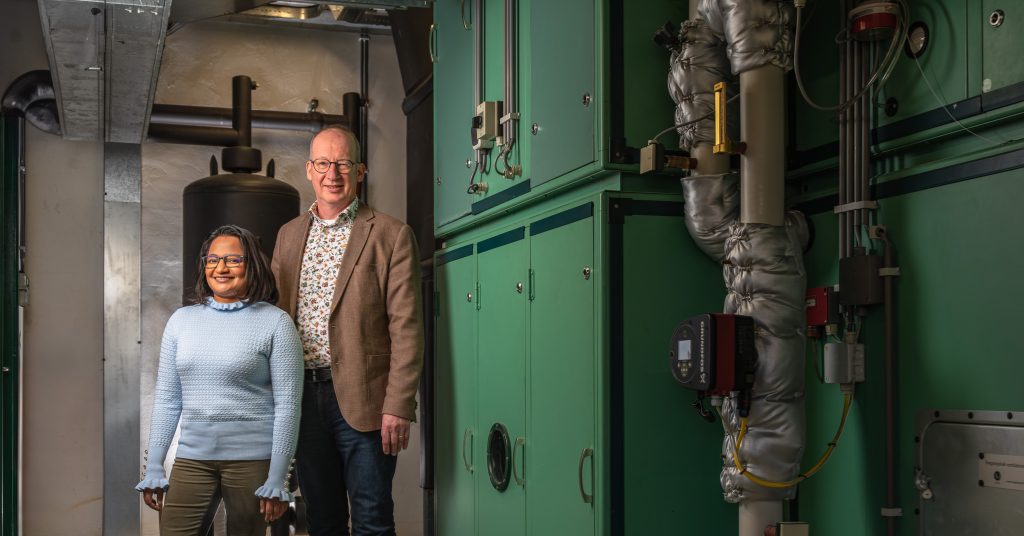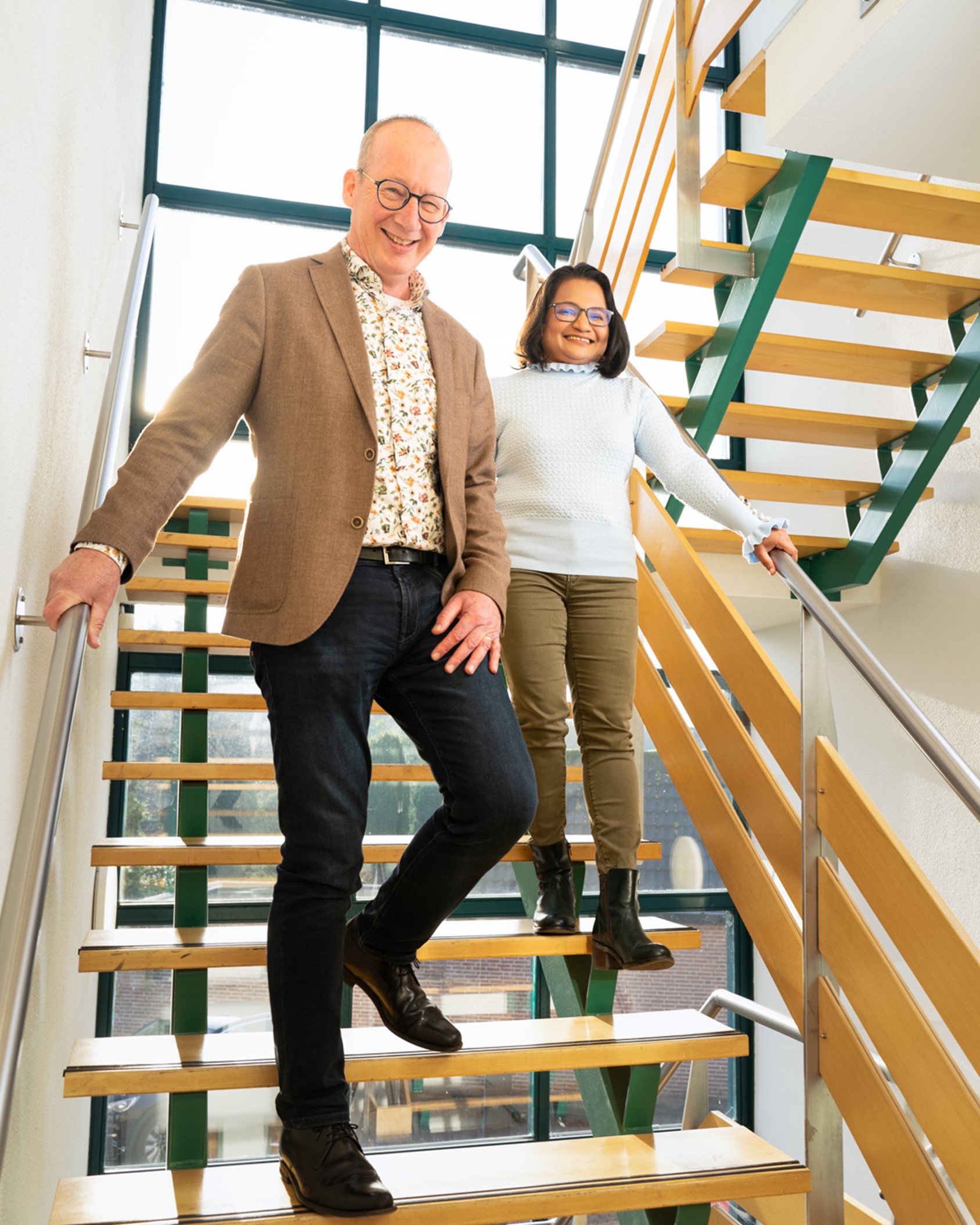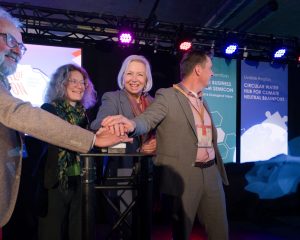From Unlikely to Unstoppable: Embracing Diversity in the Building Industry

“I never saw myself working at Kropman,” Shalika Walker confesses. “And honestly, I might not have hired Shalika,” Joep van der Velden admits, seated beside her. “But how the OpenCall of Eindhoven Engine changed things. We’ve now created a new position within Kropman specifically to bring Shalika on board,” says Joep with a big smile.
We are at one of the offices of Kropman. This company designs, builds, maintains, and manages building installations, including climate control. “Kropman, rooted in construction, is traditionally less dynamic compared to sectors like semiconductors or the medical industry. So, working here was not on my radar,” Shalika shares.
Kropman’s Workspace: More Than Meets the Eye
“Welcome to our living lab,” Joep announces as he leads me into a spacious, open-plan office. At first glance, it looks ordinary, with dark gray carpets, white adjustable desks, and black office chairs. Joep notices my lukewarm reaction and gives a knowing sigh, directing my attention upward. “The real innovation is actually hidden above us in the ceiling.” I follow his gaze to a beige suspended ceiling, and he points out a translucent cap. “Those are sensors. They allow us to monitor and adapt the office environment, responding to the current scenario or the presence of workers.”
At Kropman, the pride lies in being system integrators. We source pumps from one company, sensors from another, and piping and operating systems from yet another. Our goal is to seamlessly blend these components, providing our customers with a unified operating system that manages lighting, climate control, and solar panels, among other things. This integration is meticulously crafted to enhance the experience for our clients’ employees, focusing on maximal efficiency and environmental sustainability, using as little energy as possible.
Embracing Open Collaboration for Innovation
Creating an integrated system might seem straightforward, but it’s a challenging endeavor. We’re in a field dominated by heavyweights like Siemens, Honeywell, and Signify, each offering products with proprietary systems and unique data outputs, typically closed to external systems. To navigate this, we developed our software to manage and optimize the diverse systems a client might have. However, the need for a testing ground became apparent. Clients often hesitate to open their buildings for experimental setups; hence, we transformed our Breda office into a living lab.
True partnership proved elusive until we found a more receptive community in the Brainport region.
We strongly believe in an open environment for research and development. Our efforts to collaborate with universities and companies across and beyond Europe, however have been met with limited success. True partnership proved elusive until we found a more receptive community in the Brainport region. This shares a work and research philosophy similar to our own company’s, plus communication is direct and efficient, enabling us to quickly and easily connect with each other. This welcoming atmosphere was pivotal when Wim Zeiler, a former colleague now with Eindhoven University of Technology and still an advisor at Kropman, introduced us to the Eindhoven Engine OpenCall. Recognizing its potential to foster meaningful partnerships, we eagerly seized this opportunity.

Eindhoven Engine’s OpenCall: A Catalyst for Collaboration
“Working with Eindhoven Engine offers a unique experience,” Shalika explains. “We share a location with a variety of companies and students, all engaged in their own projects. This diversity is beneficial. It’s not just about casual connections, like chatting at the coffee machine; we also attend sessions to share and discuss project progress.
For instance, while working on a data prediction project, I overheard a researcher at Eindhoven Engine’s Festival of Disruption event discussing data usage in cancer research. It didn’t click immediately, but later, the idea struck me at home: we could collaborate and enhance our respective research.
These interactions open up new perspectives and inspire innovative thinking. “This collaborative atmosphere was the reason Kropman signed up for three projects in a row. One project focused on detecting and diagnosing faults in building climate systems. The second project involved personalized thermal comfort systems, allowing employees to adjust their workspace climate via a smartphone app. The third was an assessment of CO2 sensors in the market, evaluating their accuracy for reliable CO2 readings in schools.
Although these projects are completed within Eindhoven Engine, we continue to build on the research and improve the products developed.” “And that’s why we brought Shalika on board,” says Joep.
